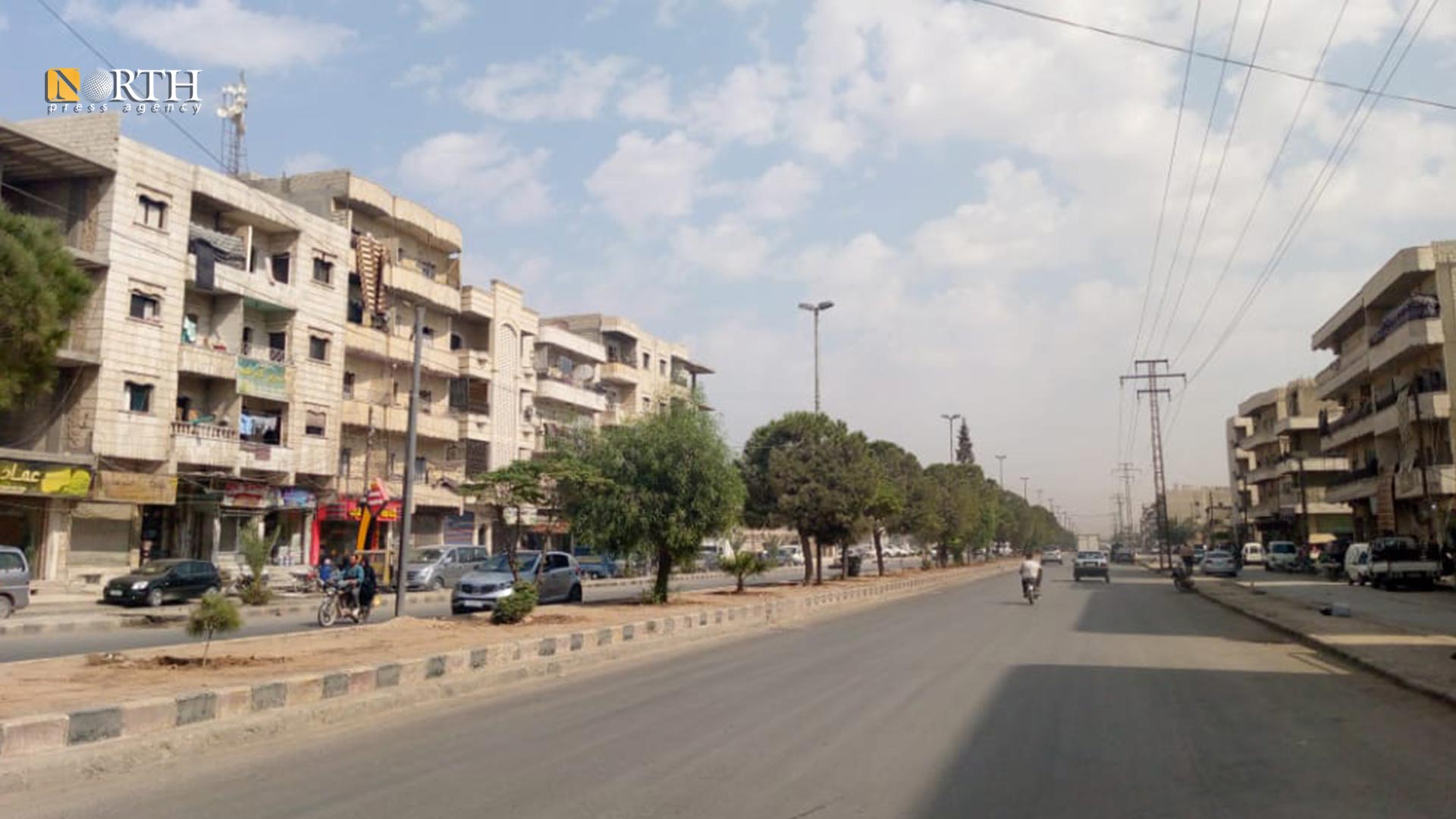MANBIJ, Syria (North Press) – Amina no longer has the hope to find her husband who went missing in Manbij, northern Syria, when the city fell to the control of the Islamic State Organization (ISIS) more than eight years ago.
Amina Ahmad, 46, from the city of Manbij in the eastern countryside of Aleppo said she lost contact with her husband after he left the city intending to go to Damascus.
Amina is not a single case in Manbij. Rather, she is a case of wives whose husbands have gone missing in those gloomy days.
Amin has been baffled in searching for her husband “We do not know if he is still held by the regime or ISIS,” however, Amina has been able to go to a lot of security branches of the Syrian government in Damascus.
The city of Manbij, east of Aleppo, is one of the most important industrial centers in northern Syria, as it is a transportation hub and sits on a commercial road linking the Autonomous Administration held areas with those of the Syrian government, in addition to opposition-held areas in northern Syria.
The Syrian Democratic Forces (SDF) supported by the US-led Global Coalition to Defeat ISIS liberated Manbij from ISIS in 2016 following fierce battles.
Early in 2014, hundreds were arrested by ISIS for different reasons. The vault under the hotel in the city was taken as a prison. Many were killed en masse and they were buried in mass graves, according to locals in the area.
Amina could not find any piece of information on her husband. She was told to look for him in the detention centers of ISIS.
However, the horror by which the group used to be known prevented Amina from doing so.
The wife hopes that one day her husband return home. She lives right now with her daughter. Life is a burdensome one without a sponsor.
In July 2022, a mass grave was found in Manbij which included more than 10 bodies highly likely civilian detainees killed when the group was controlling the city.
At the time, a cadre in the medication team overseeing the exhumation process said the bodies “Were of civil prisoners held by the organization whose identities could not be verified according to initial information.”
From her part, Zahida Aqili received no information on her husband who was arrested by the group on charges of trading tobacco. She visited the jails and hisba centers to no avail.
However, Zahida had a piece of information signifying her husband was held in an ISIS jail where it was said he was beaten and tortured veraciously. Upon attempting to escape, they had his leg fractured. The whole version was told by a released prisoner from an ISIS jail who said he saw Zahida’s husband with his own eyes.
When Zahida went to look for her husband she was maltreated by the militants of the group. Over fears over the fate of her husband, she no longer asks about his whereabouts. She has no idea about her husband who remains missing.
Since the liberation of the city, a lot of mass graves have been found in the city.
In the last mass grave found “All bodies were handicapped and eye-banded mostly killed at the head,” said the head of the Health of Committee in the city.
Ali Muhammad, an administrator in the Turkmen Society in Manbij, 550 people were documented missing when the group was controlling the city, 129 of them were arrested by the group. They have no information on their whereabouts.
The Turkmen Society documents the missing under the reign of ISIS. It has become a reference for the missing and the forcibly disappeared. It is the first project in the city that provides data for humanitarian organizations to render aid to the families of the missing, according to an administrator in the society.
The society kicked off work in June 2022 when it started to document breaches against locals besides missing and detainees at the hands of ISIS.
The documenting process goes in coordination with local councils in the city of Manbij and its countryside. When the city is covered wholly, then the documentation will cover the countryside.

